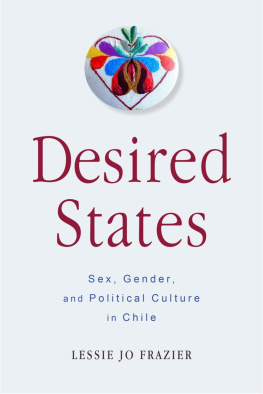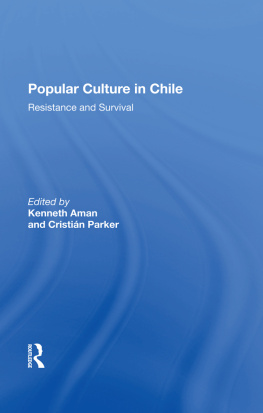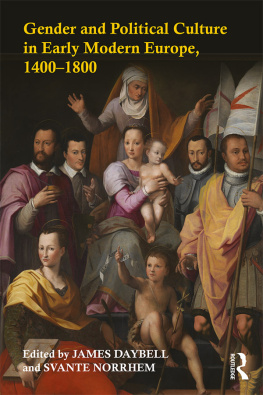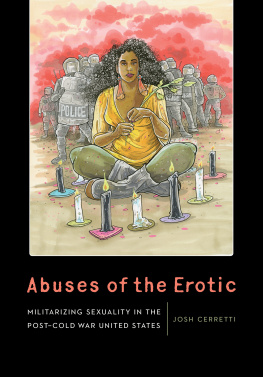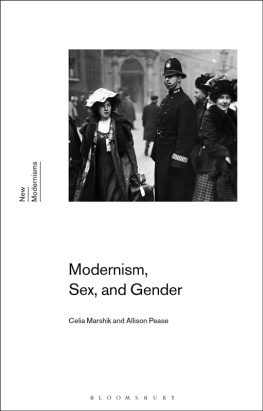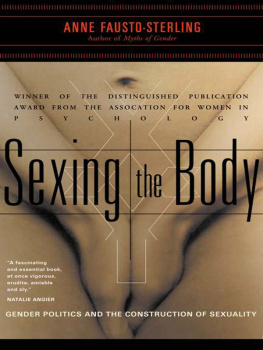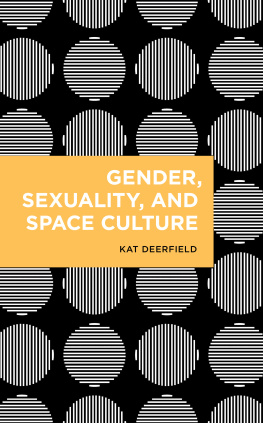Library of Congress Cataloging-in-Publication Data
Names: Frazier, Lessie Jo, 1966 author.
Title: Desired states: sex, gender, and political culture in Chile / Lessie Jo Frazier.
Description: New Brunswick, New Jersey: Rutgers University Press, [2020] | Includes bibliographical references and index.
Identifiers: LCCN 2019037921 | ISBN 9780813597218 (paperback) | ISBN 9780813597225 (hardback) | ISBN 9780813597232 (epub) | ISBN 9780813597249 (mobi) | ISBN 9780813597256 (pdf)
Subjects: LCSH: Sex customsChileHistory. | SexPolitical aspectsChileHistory. | Sex rolesPolitical aspectsChileHistory. | ChilePolitics and government20th century.
Classification: LCC HQ18.C5 F73 2020 | DDC 305.30983dc23
LC record available at https://lccn.loc.gov/2019037921
A British Cataloging-in-Publication record for this book is available from the British Library.
Copyright 2020 by Lessie Jo Frazier
All rights reserved
No part of this book may be reproduced or utilized in any form or by any means, electronic or mechanical, or by any information storage and retrieval system, without written permission from the publisher. Please contact Rutgers University Press, 106 Somerset Street, New Brunswick, NJ 08901. The only exception to this prohibition is fair use as defined by U.S. copyright law.

The paper used in this publication meets the requirements of the American National Standard for Information SciencesPermanence of Paper for Printed Library Materials, ANSI Z39.48-1992.
www.rutgersuniversitypress.org
Manufactured in the United States of America
In memory: Fernando Coronil, Anglica Gimpel-Smith,
Pat & Piner Stevens, and always Mandy
In gratitude: Phil, Lynn, Richard, Demaris, and Deborah
In friendship: Pati, Gabriel, Marisol, and Chila
Regard the cover of this book (figure 1). Heart, fruit, vulva. Densely, delicately embroidered in red, purple, green, blue, and peach thread on white cloth. The stem evokes connectedness, the leaves transformative energy, the concentric curves of open fruit wounds and ripe passion. Food, sex, emotion, vital nutrients. Sensuous work.
The artist, Patricia Ruiz Delgado, worked dozens of such hearts. Each embroidered heart of the sixteen in her traveling exhibit Corazones corresponds to the amateur photograph of a smiling woman whose life was ended by murder, a fact noted succinctly at the end of the poetic passage posted just below each photograph along with a poem, curated or written by the artist.
In that moment, in that space, this artist called out the state not only for its more or less accepted mandate to ensure the basic conditions of life but also for the conditions of possibility for multivalently desiring subjects. An apt instance, for me, showing political desire as a robustly expansive category: the method, aesthetic, and substance of feminist emancipatory projects.
There is more. This desire is embedded in dense social relations that give it valence. Growing up in a working-class neighborhood in the national capital, Santiago, during a military dictatorship that lasted nearly two decades, Ruiz Delgados inquisitiveness led her to seek out the flourishing feminist nongovernmental organizations (NGOs) offering workshops (talleres) on everything from political theory and the arts to practical and hopefully remunerative skills.
It is perhaps fitting that the publication of this book coincides with the thirtieth anniversary of my first wintry visit to Chile. It was then that I met PatriciaPatiin the downtown artisans fair where she shared a tented stall, selling leather goods with a smooth, soft camel finish onto which shed painted tiny folk images and scenes. Later, she enrolled in a feminist project to train women to enter the fisheries industry, a field in which she did successfully work for a while, until her political commitments drew her into the grassroots work of transnational womens NGOs. Over time, she came to embrace the category lesbian, as it emerged in that context, as one that affirms her creativity and commitments. In recent years she has deepened her creative labors, culminating in the Corazones project.

Figure 1 Entrelazadas (Entwined), digital photograph of cotton thread and fabric textile, embroidered by hand. From the exhibition Corazones Ni Una Menos, Patricia Ruiz Delgado. Courtesy of the artist.

Figure 2 Patricia Ruiz Delgados Corazones Ni Una Menos exhibition, Chilean National Archives, 2017. Courtesy of the artist.
As much as her artwork, Patis biographical trajectoryas an organic intellectualparallels the concerns of this book: a questioning of boundaries between the intimate and the political, between needs and desires.
Sex and politics. Both common sense and the media tell us they are linked, but do we understand how and why? Could it be that political projects themselvesnot to mention political actorsare erotically charged in ways that intersect with and at times shape the desires, sexual practices, and very parameters of their constituencies?
Modernist ideals of political culture have directed these political projects and their incumbent desires toward the polis. This orientation, which in my time frame has largely been toward the state, including the military, comes with a significant cost, however, and with challenges from subordinate sectors. In Desired States, I contrast the tensions around state-centered political desires at particular moments and consider issues of exclusion and excess in terms of how and for whom the orientation of desire works at given conjunctures. How do people connect with and become mobilized in political projects, and how do they become disaffected or excluded? How do spaces for alternative orientations emerge?
This book looks to Chile to examine these questions. You might ask, why Chile? For me, these theoretical questions can be answered best in relation to the particular struggles of people encompassed under the nation-state (as an arbitrary political unit). However, in Euro-U.S. scholarship, places like Chile are often mobilized as cases or examples of purportedly generalizable models. Indeed, Chile is a place long on the world stage as a laboratory and example for political ideologies and economic models. In recent times, the country has been seen as the neoliberal darling, the Chilean Miracle, the Jaguar of Latin America. It is also the first country in the Americas to elect a woman president in her own right, then reelect her for a (nonconsecutive) second term. It has a rich history of workers organizations as well as cross-class projects successfully attaining state power and governance. Chiles vibrant political culture offers a useful window onto the production of desire, especially given the countrys curious status as simultaneously geopolitically exemplary and marginal.

 The paper used in this publication meets the requirements of the American National Standard for Information SciencesPermanence of Paper for Printed Library Materials, ANSI Z39.48-1992.
The paper used in this publication meets the requirements of the American National Standard for Information SciencesPermanence of Paper for Printed Library Materials, ANSI Z39.48-1992.


